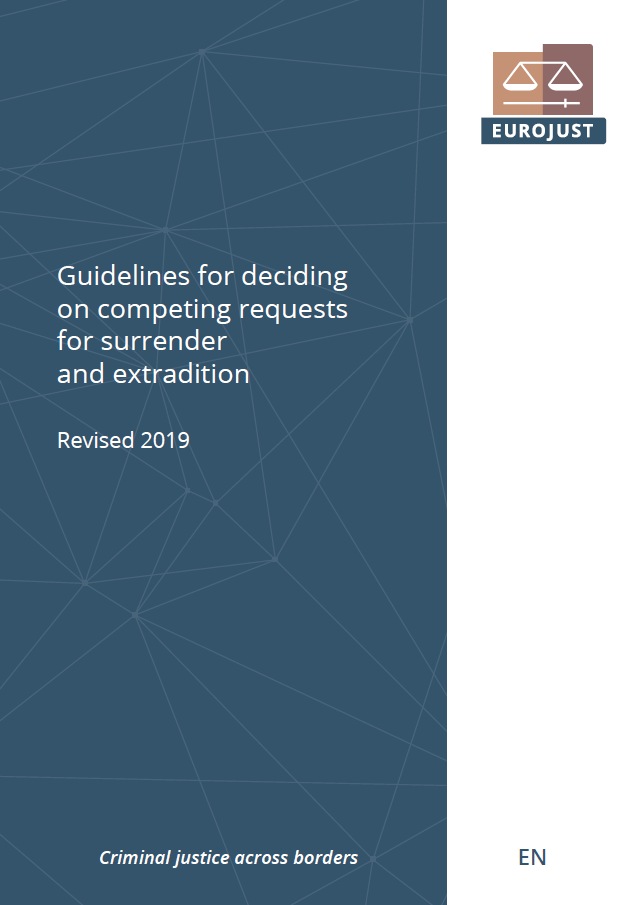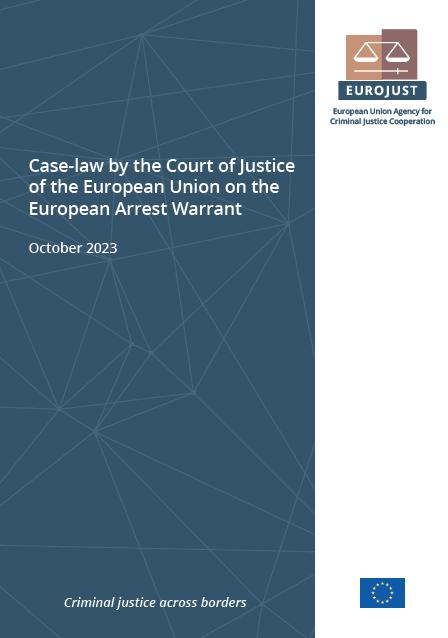From a strategic perspective, Eurojust’s Judicial Cooperation Instruments Team discussed legal issues emerging from recent Eurojust cases. They addressed, for instance, several questions surrounding competing requests for surrender and extradition, including differences between Member States’ national provisions regulating this matter, the competent authorities in charge of the decision-making and the added value of Eurojust’s involvement in the coordination process.
An opinion on competing EAWs
In the largest ever coordinated hit against the ‘Ndrangheta (the mafia-style organisation responsible for much of Europe’s cocaine trade), Eurojust supported the arrest of 132 members of the organised crime group (see the case illustration in section 3.11). Three linked cases related to this major international operation were opened at Eurojust at the request of the Italian, German and Belgian national authorities.
One of these cases specifically addressed the issue of competing EAWs. Italy had issued one EAW and Germany had issued four EAWs against the same person (the requested person) in relation to different offences. The Italian EAW was issued for the purpose of prosecuting money laundering by the organised crime group, ‘Ndrangheta. Two of the German EAWs were issued for the purpose of prosecuting fraud, while the other two were issued for the purpose of executing a custodial sentence for theft and causing material damage. The requested person was under arrest in Belgium (the executing Member State) based on these EAWs.
The Belgian Federal Prosecution Office asked Eurojust to provide a legal opinion on how to prioritise the Italian and German EAWs. Eurojust, applying its Guidelines for deciding on competing requests for surrender and extradition, considered the specifics of the case and decided that the Italian EAW should be given priority. The seriousness of the Italian offence was considered greater than that of the offences mentioned in the German EAWs, particularly in the context of the wider Italian criminal proceedings. Neither the higher number of offences committed in Germany, nor the material damage suffered directly by the victims, were considered sufficient to outweigh the gravity of the money laundering offence, which supported the criminal activities of the ‘Ndrangheta suspects. The Belgian court followed Eurojust’s advice and executed the Italian EAW.
A legal note on a case involving a judgment in absentia
One of the topics that frequently triggers questions in Eurojust cases concerns EAWs for the purpose of executing a sentence imposed by a decision rendered in absentia, and the correct application of the related ground for refusal. In one such case, Polish authorities had issued an EAW to authorities in the Czech Republic for the execution of a sentence imposed in absentia. The case was brought to Eurojust as Polish and Czech authorities had diverging views on how to apply the optional ground for refusal under Article 4a of the EAW Framework Decision (in absentia ground). The Czech authorities argued that surrender could be refused unless Poland provided a guarantee that the requested person would be entitled to a retrial. The Polish authorities took the view that the EAW should be executed even without such a guarantee. The analysis carried out by Eurojust led to the conclusion that the EAW should be executed. First, one of the key conditions under the relevant legal framework was met: the requested person was aware of the charges against him and was represented by a lawyer at trial. Second, even if this condition were not met, the same conclusion could be reached due to the existence of other circumstances from which it could be concluded that surrender would not infringe the rights of the defence. In the present case, the requested person, aware of the charges against him, had chosen to avoid prosecution by fleeing to another Member State and preventing his summons in person, thereby waiving his right to be present at the trial. Eurojust therefore considered that, in line with the CJEU’s relevant case-law on this matter, surrender should not be refused in such cases. The Czech authorities followed the opinion of Eurojust and executed the EAW.
Case-law by the Court of Justice of the European Union (CJEU) on the EAW
Throughout the year, Eurojust monitored the relevant case-law of the CJEU, and in October 2023 published an updated overview. This latest issue includes summaries of nine new judgments compared to the previous edition and a list of eight pending cases. This current edition of the case-law overview by the CJEU on EAW now contains 77 judgments.
Some of the issues addressed in the recent case-law include: grounds for refusal (ne bis in idem; in absentia; nationals, residents and persons staying in the executing Member State); human rights issues; and postponement of the surrender (either for serious humanitarian reasons or due to ongoing investigations against the requested person in the executing Member State). Other issues addressed include: time limits; the speciality rule; and questions surrounding the extradition of an EU citizen to a third country to serve a custodial sentence.
In its most recent case-law, the CJEU has underlined the importance of requests for additional information before refusing an EAW to promote mutual trust between the national authorities of Member States.


